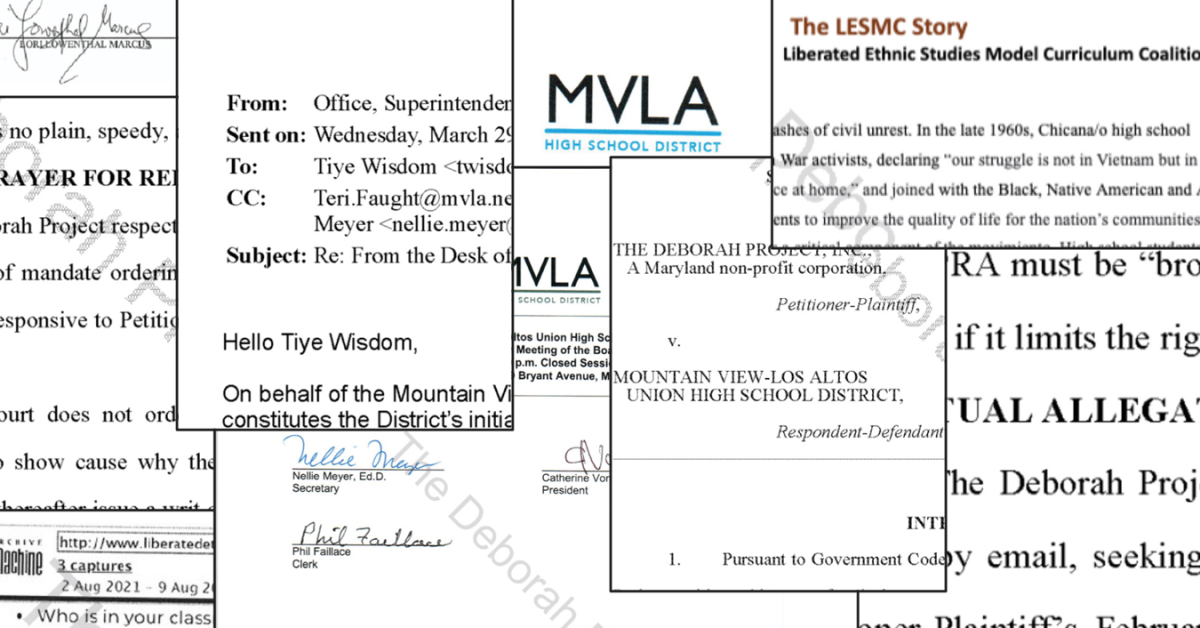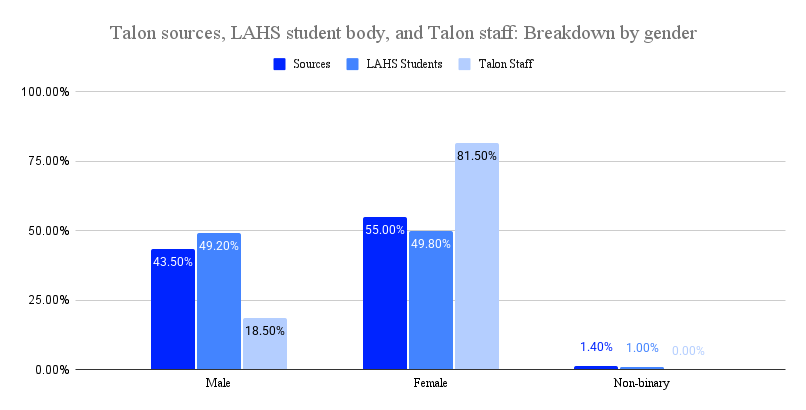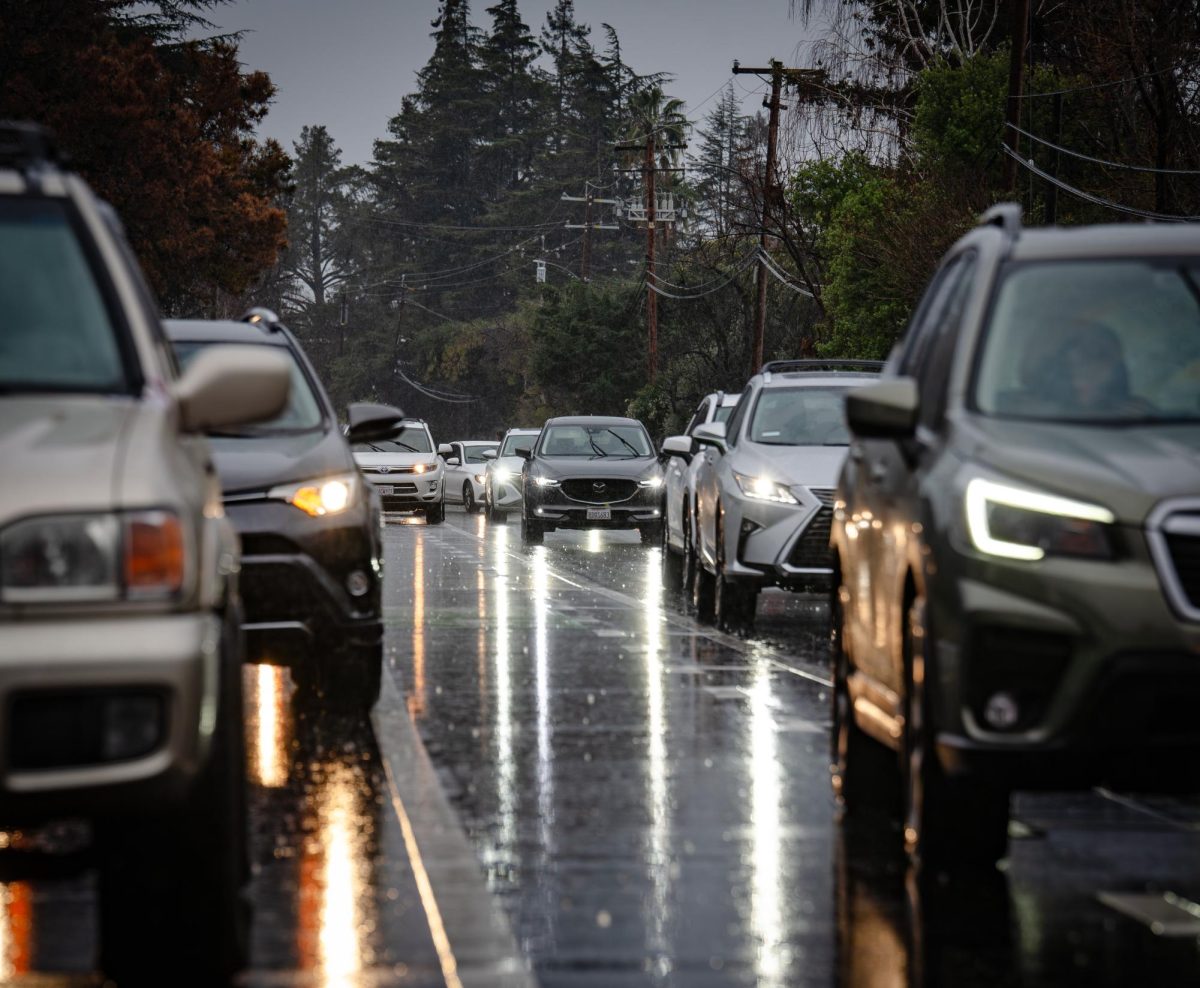The Mountain View–Los Altos District was sued this past year by the Maryland-based Deborah Project — an organization whose self-proclaimed goal is to “represent those who have been discriminated against in educational settings because they are Jewish and/or pro-Israel.” The group has filed multiple lawsuits against school districts across the country over suspicions of anti-Semitism or anti-Zionism. In late February, the Deborah Project filed a request for public records relating to the MVLA Ethnic Studies curriculum and its creation. It included public records of curriculum material and identities with the keywords, “Zionism,” “Israel,” “Palestine” and “Arabs,” to name a few.
The District didn’t produce the documents until after the Deborah Project filed suit. In the absence of a valid excuse, that delay is unacceptable.
California’s Public Records Act, passed in 1968, requires nearly all public entities in the state, from school boards to the Governor’s office, to turn over requested public records (with a few exceptions, such as rap sheets and medical records). Records requests must be fulfilled in ten calendar days unless the public entity in question requests a 14-day extension for narrowly defined “specific circumstances.” The law is comprehensive — anyone can make a request for public records, and records are assumed to be public unless stated otherwise — because access to government records is necessary for a free democracy. America’s government is designed to be of, for and by the people. If government entities had the prerogative to hide their activities from the public, accountability would become nearly impossible.
Journalists are famous for utilizing public records requests. In fact, The Talon relies on public records requests for its reporting. Without them, it would be harder for us to independently verify the truthfulness of our work and run a trustworthy newspaper. But anyone — from The New York Times to a single concerned citizen — should be able to file a records request and expect to receive the materials they want in a timely manner.
Johanna Markind, an attorney working on the Deborah Project’s MVLA case, said in an interview that the District had turned over some documents, and that the Deborah Project was reviewing them. (The District did not respond to requests for comment.) But, she added that the documents were only turned over months after the District should have provided them. By allegedly delaying a public records request for months without a legitimate justification, MVLA obstructed the unvarnished access to the truth that citizens deserve.
This isn’t just a problem in our District. The Deborah Project is suing Hayward’s school district for a similar alleged Public Records Act violation; parents claim in a lawsuit that the Palo Alto Unified School District is deliberately delaying responding to a request related to its special education program. It’s true that the government doesn’t always work on a quick timetable — after all, recovering and turning over extensive copies of public records is understandably time-consuming. Few failures are malicious, as Markind (who worked for the government in the past) points out, and there’s no reason to believe that MVLA’s failure to fulfill the Deborah Project’s request on time is intentional. But, regardless of intent, the California Public Records Act exists for a reason — to ensure that all branches of government are fully transparent. When any public entity doesn’t comply with public records requests, it becomes a larger concern for us all.
Our belief that the District should have turned over documents to the Deborah Project does not mean we agree with the Project’s stances. We believe that an ethnic studies curriculum — one that genuinely challenges students’ views on the complexity of ethnic identity, acknowledging the existence of white supremacy and oppression of racial minorities in America and beyond — is essential.
However, that includes investigating any complaints about MVLA’s Ethnic Studies curriculum and removing problematic material if it exists — and public records requests are an important part of that goal. If there are genuine problems with our District’s Ethnic Studies curriculum, as the Deborah Project alleges, public records requests would enable the public to uncover and deal with them. And if there are none, as the District has claimed, a request should make that obvious. In short, even though the Deborah Project’s views may not align with ours, its request for public documents should be beneficial to all, no matter the outcome.
We’re glad that the District eventually made its records available to the Deborah Project, and we don’t have any reason to suspect that the District intentionally hid documents from the public. However, the District’s alleged failure to turn over documents on time — especially without a proper excuse for doing so — is worrying for anyone concerned about transparency in our District. If systemic problems (like a lack of staffing) are causing these issues, the MVLA community must work to support the District until it can perform all of its governmental duties properly. And if the District is capable of responding to these requests on time, they must. Because, in no small way, our nation’s democratic way of life depends on the transparency of the smallest, most local governmental entities.









